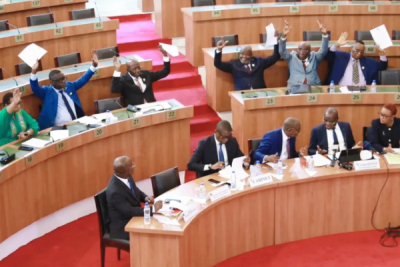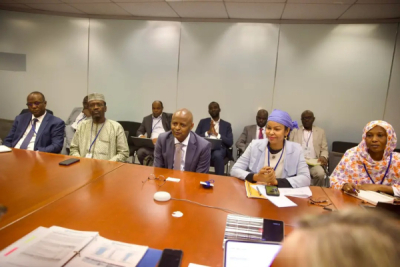The debate on the impact of artificial intelligence on development in Africa gathered pace late last year. The opportunities and threats it represents are now being scrutinized by experts and organizations.
Artificial intelligence (AI) can be a formidable asset for international peace and security, according to the United Nations Development Program (UNDP). The UN body supports this position given the rapid pace at which conflicts are evolving, and the vast amount of data generated, which human beings are unable to process efficiently for effective decision-making processes.
The UNDP believes that "artificial intelligence can help us understand and even anticipate the onset and evolution of a crisis." But it must be combined with a human touch. Indeed, the international body is certain that Human-in-the-loop AI (HITL) –a process that combines the power of machine learning with human intelligence to solve complex problems– can improve data analysis in radically changing circumstances.
In Africa, where social networks have become privileged tools of expression, and where misinformation and hate speech are on the rise, as is communication from extremist groups, AI will help enhance watchfulness. Especially on platforms such as "Facebook and Twitter, which have been unwilling or unable to address these fundamental vulnerabilities," says the UNDP.
"These companies are often unable to consider the cross-platform impacts of their policies and user behaviors. They lack the resources (and internal incentives) to understand the impact of technology in a non-Western context and, to date, have been unwilling to share the metrics needed to properly assess the effects of their policies and interventions," laments the organization in the August 2023 issue of its "Development Futures Series".
After the start of the Ukrainian-Russian conflict on February 24, 2022, Twitter, YouTube, and Facebook were actively used to report on events in real-time. They were also used as “weapons” to influence and shape opinions online. However, they have also proved useful for studying many aspects of the conflict, such as attacks on health facilities, minefields, and the use of banned weapons systems (e.g. cluster munitions).
For the UNDP, artificial intelligence systems can be tested within the UN, in a small number of country offices, or in other field operations to meet the needs of each context. The initial objective could be to expand prevention efforts in places where tensions are rising or to identify disinformation campaigns targeting humanitarian personnel. These tests could lead to the creation of a cutting-edge global platform for sharing artificial intelligence tools, tags, models, and algorithms.
Muriel Edjo



















